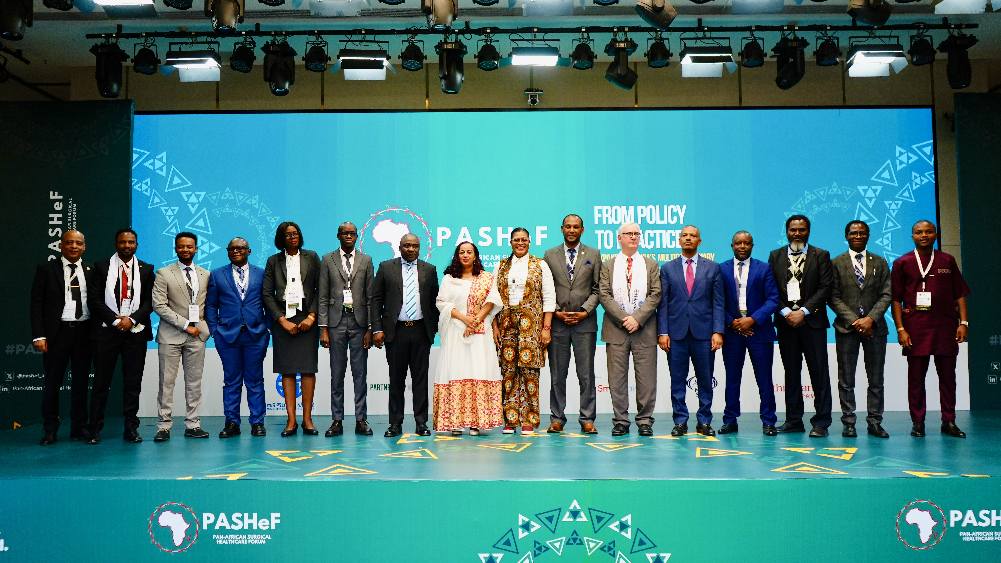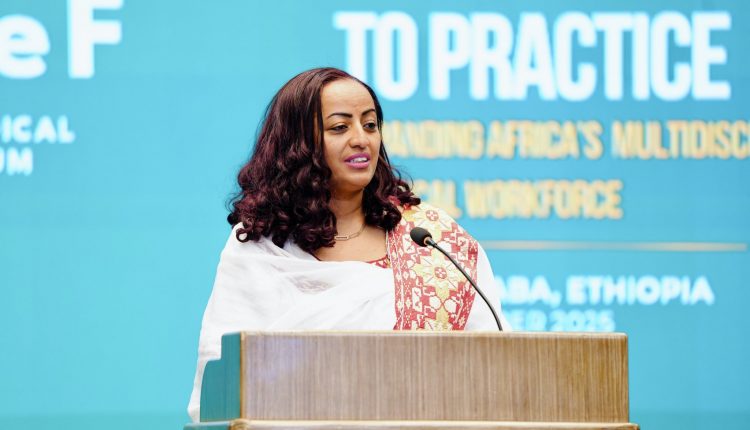Surgery is an economic investment, not a luxury, Ethiopia’s Health Minister
Addis Ababa, November 6, 2025 (FMC) — Ethiopia’s Minister of Health, Dr. Mekdes Daba, has underscored that surgical care must be at the heart of Africa’s pursuit of Universal Health Coverage (UHC), calling for bold, government-led actions and innovative approaches to transform the continent’s surgical systems.

Speaking at the opening of the Pan African Surgical Healthcare Forum (PASHeF) in Addis Ababa on Wednesday, Dr. Mekdes stressed that surgery is not a peripheral service but a core component of comprehensive health care. She urged African governments to align surgical priorities with national development agendas to ensure that services meet the real needs of communities.
Despite persistent challenges, the Minister noted encouraging post-pandemic progress, particularly the growing recognition of surgical care as a key pillar of health system resilience. She called for stronger infrastructure and investment in modern facilities to ensure lasting improvements.
Dr. Mekdes outlined five strategic priorities for both Ethiopia and Africa’s broader health agenda: healthcare financing, workforce retention, integration of surgical care into primary health systems, digital health advancement, and strengthening local pharmaceutical and medical manufacturing.
She cited Ethiopia’s recent achievements as a sign of self-reliance, noting that more than 3,000 complex surgeries were successfully conducted domestically last year—procedures that would previously have required treatment abroad.
Smile Train’s Vice President and Regional Director for Africa, Nkeiruka Obi, emphasized the importance of partnerships between ministries, training institutions, and professional associations to cultivate a skilled and motivated surgical workforce.
“PASHeF continues to lead the way in translating policy into practice, building Africa’s next generation of surgical leaders,” Obi said. She highlighted innovation as a powerful enabler, citing the growing use of virtual training and simulation technologies.
“Surgery is not a luxury—it is an economic investment essential to achieving universal health coverage,” she added, warning that over 5 billion people worldwide still lack access to safe and timely surgical care.
Obi also commended African-led innovations, referencing Ethiopia’s “salt programs” and Rwanda’s “four-by-four initiative” as models of homegrown resilience under the third phase of the policy-to-practice movement.
Dr. Walt Johnson, International Advocacy Manager at Mercy Ships, echoed these calls for unity and collaboration. “When we unite our skills and perspectives, we can achieve remarkable outcomes,” he said. “Together, we will push boundaries and reach heights that inspire everyone involved.”

